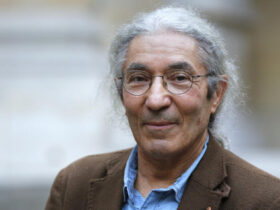Malaysia’s 4–0 win over Vietnam in June looked impressive from a distance. But, according to FIFA, soccer’s world governing body, it was carried out by seven foreign-born players using false birth certificates to claim that their grandparents were born in the country.
on September, FIFA found the Football Association of Malaysia (FAM) guilty of $438,000 (€377,000) and suspended the players.FAM said in a statement earlier this month that it would appeal the decision, saying it believed “there is no evidence to support these allegations presented by FIFA.”
The scandal has put the issue of naturalization on the front and back pages of newspapers throughout the region, which has taken the practice seriously.
‘wake up call
“This is a warning to Southeast Asia,” former Singapore international Sasi Kumar told DW.
“Other nations may be thinking, ‘We have to be careful.'”
The Madrid-based sports marketer points to his own country.
“Malaysia develops these players so quickly but in Singapore it takes us time. We are trying to get a player from there.” [Welsh club] cardiff [Perry Ng] And it’s been almost two years.”
Ng was born in Liverpool, but his grandparents are from Singapore, a family connection that provides the most common path to naturalization, especially after FIFA tightened the rules for the second path in 2008. Players must now spend five consecutive years in the domestic league to become eligible to represent that country’s national team, an increase from the previous two years after countries such as Qatar naturalized many Brazilian players.
However, there is no expectation that stricter rules will be imposed by FIFA due to the Malaysian situation.
“It is very difficult to change the rules so the existing rules must be followed with checks and balances and clear documentation,” Asian Football Confederation executive committee member Shaji Prabhakaran told DW.
“It’s not just about FIFA rules, but each country also has different civil rules, so it’s a complex situation. Clarity is important.”
small world, big world cup
Malaysia being quick to find foreign talent to bring into its squad is no surprise, given that its big rival Indonesia almost reached the 2026 World Cup, almost nine decades after its first appearance in 1938, largely due to the naturalization of players of European descent with Indonesian grandparents. The United Arab Emirates also almost qualified, with most of their team born abroad but having played in the country for more than five years.
Prabhakaran attributes the increase in naturalization to increasing globalization in all walks of life and an expanded 48-team World Cup in 2026, up from 32 four years ago.
“It has given countries everywhere greater expectations and more opportunities. Now, naturalization means they can move faster to improve their performance and quality and more countries get the chance to qualify.”
short term profit vs sustainability
A strong national team that qualifies for a tournament can boost the domestic game in terms of profile, popularity and finances but too much focus on foreign talent can have a negative impact on the domestic game.
“It’s clear from a sporting perspective what it does for a country, it propels them forward,” Kumar said.
“It’s a question of what it does for the local league, what it does for the local players and what it does for the motivation to draft players.”
Finding the right balance is essential.
“You have to work from the bottom up, always be focused on that, you can’t just bring in better players from other countries and do nothing else,” Prabhakaran said.
“You can look towards the short term to get what you want quickly but you need to invest more at the grassroots level. There has to be a balance.”
This seems to be the plan in Indonesia.
“They are developing good young players who will emerge in the medium term,” Kumar said. “So Indonesia thought, ‘Let’s go to the top and win a few, then we’ll have a domino effect and then we’ll knock out these European players. Malaysia didn’t have a plan and it backfired.’
question of identity
There are also questions about how national teams filled with foreign-born players represent the people. If nations can choose players from around the world then the days of adopting the best of one country over the best that another country has to offer may be long gone.
“Many people in Vietnam are attracted to this concept because they want to win games. They see other countries winning and want the same, it’s human nature,” Velizar Popov, coach of Vietnamese club The Cong-Viet, told DW.
Popov has previously been in charge of Malaysian club Kelantan and is skeptical of the FA situation.
“How was the Malaysian team that beat Vietnam even Malaysian? Now we know that many of the players there had no connection with the fans, no connection with the country. This was not a Malaysian team.”
How many will come to the parade?
This is not limited to just football. Before the 2008 Beijing Olympics, Singapore had won only one medal, a silver, at the 1960 Games. After this, the country produced Chinese table tennis players Feng Tangwei, Li Jiawei and Wang Yuegu who won a silver medal in 2008 and two bronze medals in 2012. Women have accounted for half of Singapore’s historic medal tally and Kumar was charged with organizing victory parades for the team.
“Not many people came,” he said. “There was no connection between the public and the team.”
Nevertheless, as long as teams have success in naturalization, others will continue to be attracted.
“When teams are winning, fans are singing,” Kumar said. “Football fans can be very short-sighted and have short-term memories. It is up to federations to focus on long-term objectives.”
Edited by: Matt Pearson






Leave a Reply